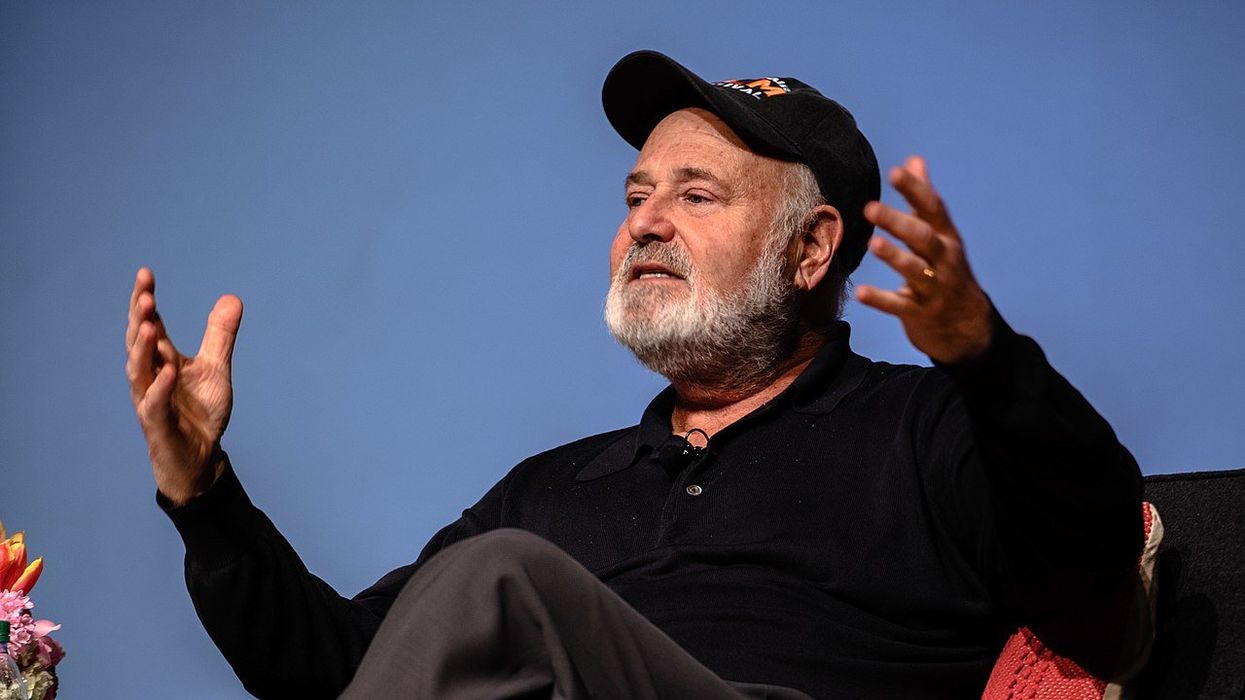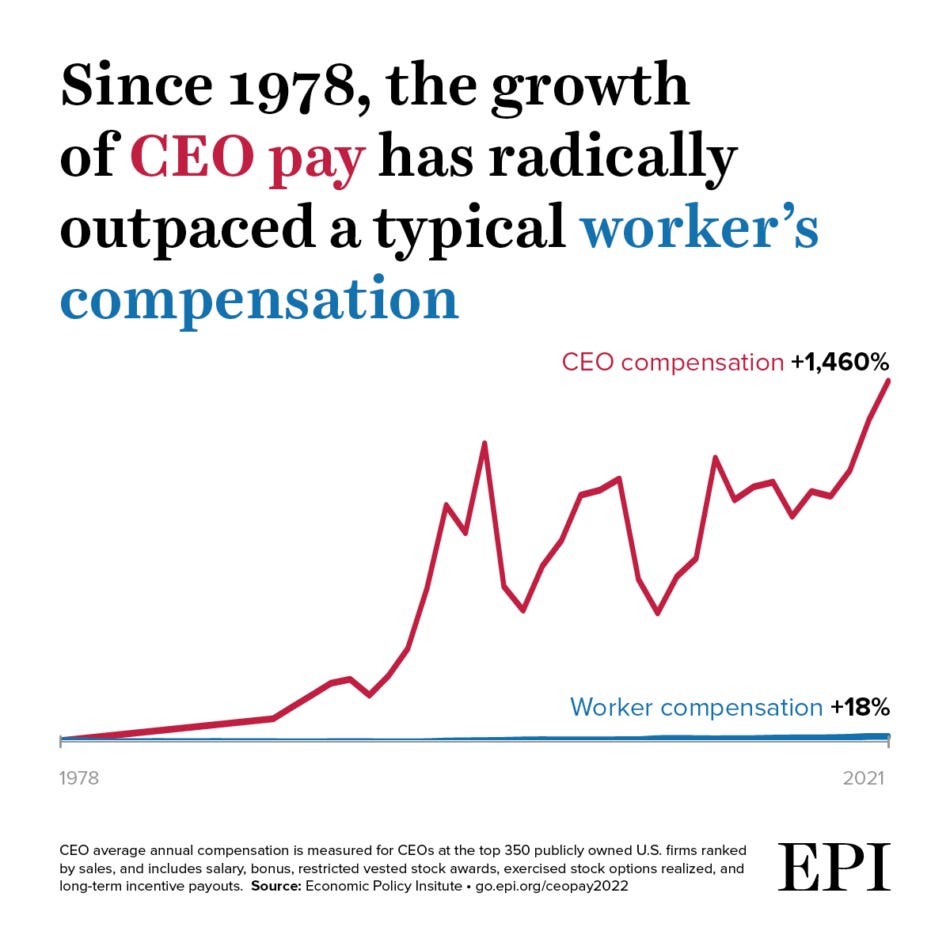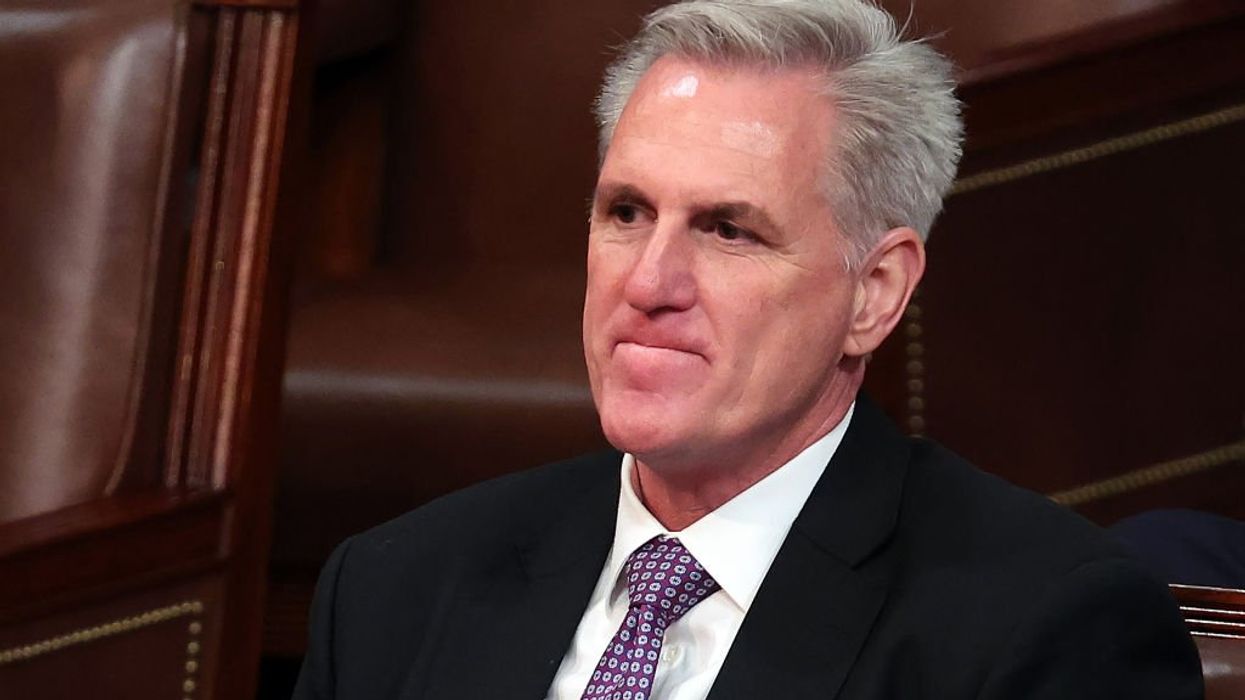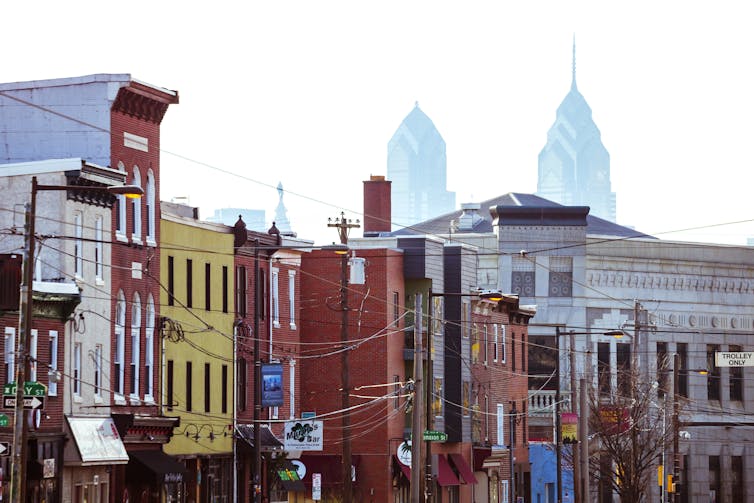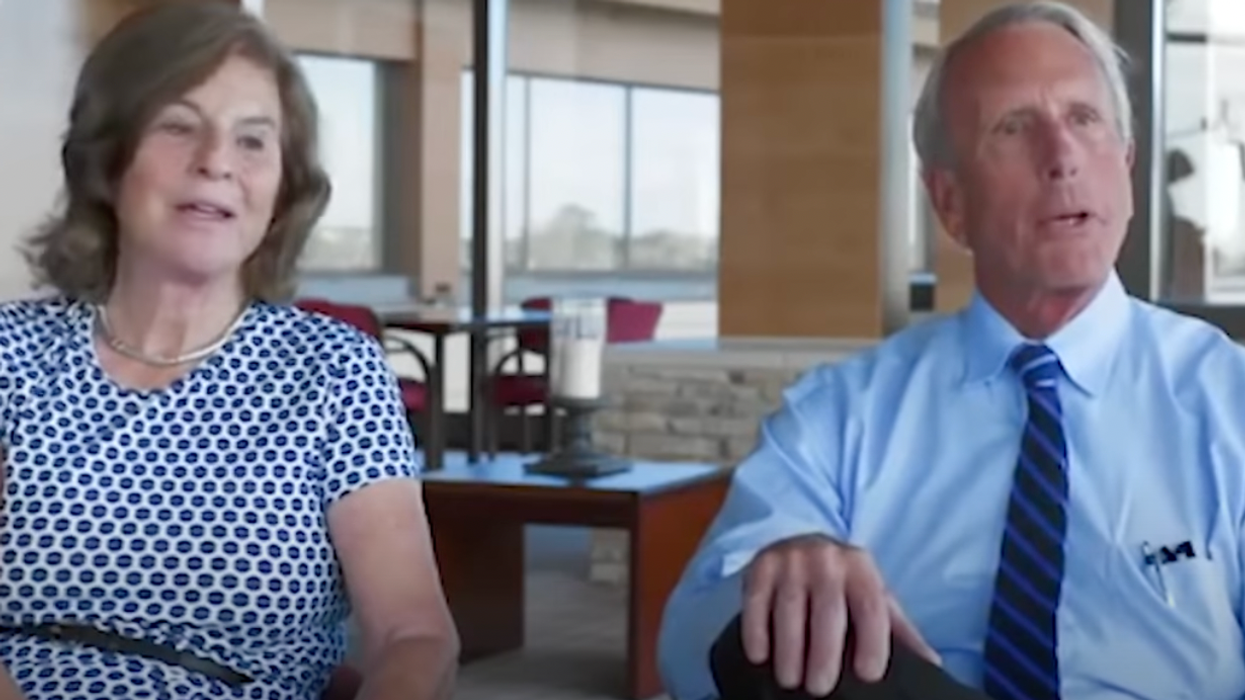December 8, 2023

Evangelical worshippers (Photo by Larry Marano for Shutterstock)
Evangelical support for former President Donald Trump, despite his own lack of devout faith, is no accident, author Tim Alberta told former CNN anchor Brian Stelter in an interview for Vanity Fair.
Rather, he argued, it is part of a deliberate campaign to radicalize and terrify them into loyalty — and part of what's driving that is a "disproportionality crisis" of the information they are receiving.
"“If you go to church on Sunday morning, you are going to be in the word with your pastor for, you know, 30 minutes, maybe 40, 45 minutes, and you sing some songs, and you say the prayers, and then you are out in the world for the rest of the week,” said Alberta. “And for most of these folks, as they’re out in the world, they are marinating in talk radio, in cable news, in social media—all of this information that is aimed at making them angry, fearful, hostile.”
Whereas they may hear Jesus' message of tolerance, love, and forgiveness “on Sunday morning for 45 minutes, but then for 4, 5, 6, 10 hours during the week, you’re hearing the exact opposite. And it’s that ratio being so far out of whack that I think is really at the heart of the crisis here.”
And that's assuming they're at a church that will even give them messages of love and forgiveness in the first place — many pro-Trump pastors, like Greg Locke of Tennessee, have messages that are far angrier.
“[Trump] may not share their views, he may not sit in the pews with them, he may not read the good book like they do, but in some way, that’s his superpower,” Alberta explained. “He is free to fight in ways that are, you know, unrestrained, unmoored from biblical virtue. And that relationship with Trump has obviously evolved over the last eight years. What started as this very uneasy alliance for a lot of evangelicals with Trump has now morphed into this situation where, look, desperate times call for desperate measures. The barbarians are at the gates and we need a barbarian to keep them at bay." This means that Trump's increasingly dictatorial rhetoric is a natural outlet for the rage and frustration these evangelical voters are being fed.
None of this is to say that Trump has completely unified the evangelical world. Cracks have appeared in recent months, with prominent evangelical leaders like Bob Vander Plaats of Iowa endorsing Florida Gov. Ron DeSantis out of concern about Trump's electoral viability.

In a significant shift from previous trends, recent research has uncovered a sharp rise in negative language use by politicians in the United States, particularly aligning with Donald Trump’s entry into the political scene in 2015. The new study is unprecedented in its comprehensive analysis of millions of quotes from politicians over 12 years, using advanced linguistic tools to assess the escalation of negative language.
The findings, published in Scientific Reports, provide evidence that this shift towards negativity has persisted beyond election campaigns, indicating a lasting change in the tone of political conversation in the United States.
In recent years, many Americans have felt that the language of politics has grown increasingly negative. This perception has been especially prominent since Trump’s foray into the political arena. Previous studies have suggested growing political polarization and negativity, but until now, concrete evidence showing the evolution of political language over time was lacking. This gap in knowledge spurred researchers to investigate whether the perceived negativity aligns with actual changes in political discourse.
“In 2016, when Trump was elected president, everyone had the impression that the tone of politics had become rougher, uglier, and more negative,” said study author Robert West, an assistant professor and head of the Data Science Lab at the Swiss Federal Institute of Technology, Lausanne.
“As data scientists, we were curious to see whether people’s hunch was right. But we didn’t have data for it yet, since there was no public corpus of news quotations linked to the people who had uttered them. So we went on a four-year journey to compile such a corpus, Quotebank, and by the time we were done collecting the data, Trump’s term was done, too. So by the time we could analyze the tone of politics, we had Obama’s as well as Trump’s presidencies to study.”
Quotebank comprises nearly a quarter-billion quotes extracted from over 127 million online news articles spanning 12 years, from September 2008 to April 2020. To focus specifically on U.S. politics, the researchers extracted 24 million quotes from 18,627 politicians, ensuring a comprehensive and representative sample for the current study.
To objectively measure the tone of political language over time, the research team employed a tool called the Linguistic Inquiry and Word Count (LIWC), which analyzes text for various psychological and emotional content. Each quote was scored based on the percentage of words reflecting negative emotions, such as anger, anxiety, and sadness, as well as the use of swear words. The researchers then averaged these scores monthly, creating a timeline of political language tone over 12 years.
The researchers found a substantial spike in the use of negative language starting in June 2015, aligning with the beginning of Donald Trump’s primary campaign. This wasn’t just a small uptick; the frequency of negative emotion words surged by 1.6 standard deviations, an 8% increase from the pre-campaign average. The increase wasn’t limited to general negativity but spanned across specific categories like anger, anxiety, sadness, and swear words.
Interestingly, while there was a significant jump in negative language in 2015, the study also found that the overall tone of political language had actually been decreasing in negativity during Barack Obama’s presidency before this point. This suggests a notable shift in the political climate with Trump’s entry into politics.
One of the most revealing aspects of the study was the influence of prominent speakers, particularly Donald Trump, on this trend. When Trump’s quotes were removed from the analysis, the jump in negative language in June 2015 dropped by 40%, indicating his significant impact. However, the increase in negativity was not solely due to Trump. The trend persisted even when his quotes were excluded, indicating a broader shift in the political landscape. The negative tone persisted throughout Trump’s term, indicating a lasting change in the political discourse.
“People’s hunch is true: during Trump’s presidency, the tone of U.S. politics became significantly more negative, and it happened as a sudden jump at the time when Trump’s primary campaign started,” West told PsyPost.
Additionally, the researchers found systematic differences in the use of negative language based on party affiliation and the party’s role at the federal level. Notably, the increase in negative language from June 2015 onwards was more pronounced among Republican politicians compared to their Democrat counterparts.
While the findings are robust, the study is not without its limitations. One key consideration is the role of media in shaping the dataset. Since the quotes were sourced from online news articles, it’s possible that the observed increase in negativity could be influenced by the media’s reporting preferences or biases. Additionally, the study focused on digital news sources, which might not fully represent the wider media landscape, including traditional news outlets and television.
The study, “United States politicians’ tone became more negative with 2016 primary campaigns“, was authored by Jonathan Külz, Andreas Spitz, Ahmad Abu-Akel, Stephan Günnemann, and Robert West.
© PsyPost
